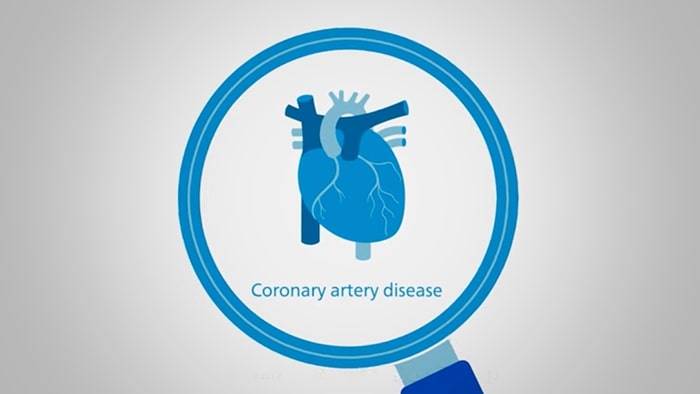Myocarditis is a serious condition that involves inflammation of the heart muscle (myocardium), which can lead to severe complications if not diagnosed and treated properly. While it’s primarily a concern for cardiologists and patients with cardiovascular issues, understanding the factors that increase the risk of myocarditis is valuable for everyone, including dental patients. This is because systemic health issues, including oral health, can influence cardiovascular health and vice versa. In this article, we’ll explore the various factors that put you at risk for myocarditis and how maintaining good oral hygiene might play a role in reducing these risks.
Infections: The Leading Cause of Myocarditis
Viral Infections
Viruses are the most common cause of myocarditis. Viruses like the Coxsackie virus, influenza, adenovirus, and even the SARS-CoV-2 virus responsible for COVID-19 have been linked to myocarditis. These viruses can directly invade the heart muscle or trigger an immune response that inadvertently targets the heart, leading to inflammation.
Bacterial Infections
Although less common than viral causes, bacterial infections can also lead to myocarditis. Bacteria such as Staphylococcus, Streptococcus, and Borrelia (the cause of Lyme disease) can infect the heart muscle, especially if a bacterial infection in another part of the body is left untreated. For dental patients, this highlights the importance of promptly treating dental infections like abscesses, as bacteria from the mouth can potentially spread to other parts of the body, including the heart.
SEE ALSO: How to Prevent Myocarditis After Vaccine
Fungal and Parasitic Infections
Fungal infections like those caused by Candida species and parasitic infections such as Chagas disease can also cause myocarditis, although these are rarer and more commonly seen in immunocompromised individuals.
Autoimmune Conditions And Myocarditis
Autoimmune Diseases
In autoimmune conditions, the body’s immune system mistakenly attacks its own tissues. Conditions such as lupus, rheumatoid arthritis, and sarcoidosis can lead to myocarditis when the immune system targets the heart muscle. Patients with these autoimmune disorders are at a higher risk of developing myocarditis, especially if their condition is not well-controlled.
Systemic Inflammation
Chronic systemic inflammation, whether from an autoimmune disease or chronic conditions like periodontitis (a severe gum disease), can also increase the risk of myocarditis. Inflammation in the gums can lead to an increase in inflammatory markers throughout the body, potentially contributing to inflammation in the heart.
Medications And Toxic Substances
Certain Medications
Some medications, while beneficial for treating other conditions, can have side effects that increase the risk of myocarditis.
For instance, certain chemotherapy drugs, antipsychotics, and antibiotics like sulfonamides have been associated with myocarditis. It’s important to monitor for signs of myocarditis if you’re taking these medications, especially if you have other risk factors.
Illegal Drugs and Toxins
Illicit drug use, particularly cocaine and amphetamines, is a significant risk factor for myocarditis. These substances can directly damage the heart muscle and induce an inflammatory response. Additionally, exposure to toxins like heavy metals, carbon monoxide, and certain chemicals can lead to myocarditis.
Genetic Predisposition
Inherited Conditions
While myocarditis is often triggered by external factors, some individuals may have a genetic predisposition to developing the condition. Inherited heart conditions like cardiomyopathies can make the heart more vulnerable to inflammation. If you have a family history of heart disease or myocarditis, you may be at an increased risk.
Physical Activity And Stress
Intense Physical Activity
Engaging in intense physical activity, particularly during or after a viral infection, can increase the risk of myocarditis. This is because vigorous exercise can strain the heart, making it more susceptible to inflammation if there’s an underlying infection.
Chronic Stress
Chronic stress has been shown to have a profound impact on heart health, including increasing the risk of myocarditis.
Stress can weaken the immune system, making it harder for your body to fight off infections that could lead to myocarditis.
Additionally, stress-induced hormonal changes can exacerbate inflammation in the heart.
The Role of Oral Health in Reducing Myocarditis Risk
Periodontal Disease and Heart Health
Periodontal disease, or gum disease, is a chronic inflammatory condition that affects the gums and the structures supporting the teeth. Research has shown a strong link between periodontal disease and cardiovascular conditions, including myocarditis. The bacteria responsible for gum disease can enter the bloodstream, causing systemic inflammation that may contribute to heart inflammation.
For dental patients, maintaining good oral hygiene is not just about preventing cavities and gum disease; it’s also about protecting your heart. Regular dental check-ups, proper brushing and flossing techniques, and treating gum disease promptly can reduce the bacterial load in the mouth and lower the risk of systemic infections that might contribute to myocarditis.
Dental Procedures and Myocarditis Risk
Certain dental procedures, particularly those that involve the gums or teeth roots, can introduce bacteria into the bloodstream, potentially leading to infections that might cause myocarditis. While this risk is low, it’s still important for patients with existing heart conditions or those at higher risk of myocarditis to inform their dentist of their medical history.
In some cases, antibiotics may be prescribed before dental procedures to reduce the risk of infection.
Conclusion
Myocarditis is a complex condition with various risk factors, ranging from infections and autoimmune diseases to medications, toxins, and even oral health. While some risk factors, such as genetic predisposition and certain medications, may be beyond your control, others, like maintaining good oral hygiene and avoiding illicit drug use, are actionable steps you can take to reduce your risk. For dental patients, understanding the connection between oral health and heart health is crucial. By taking care of your teeth and gums, you’re not just protecting your smile—you’re also safeguarding your heart.

